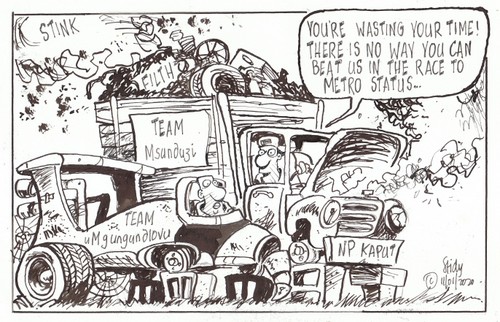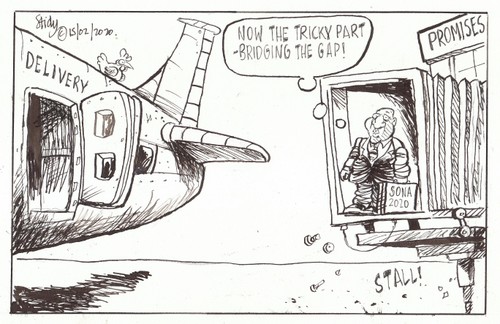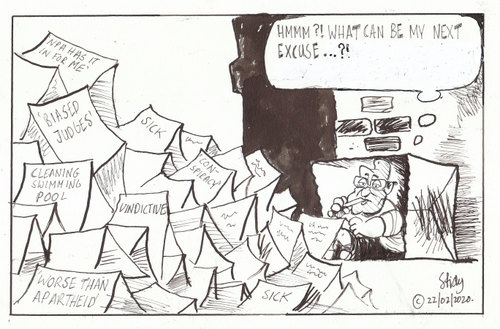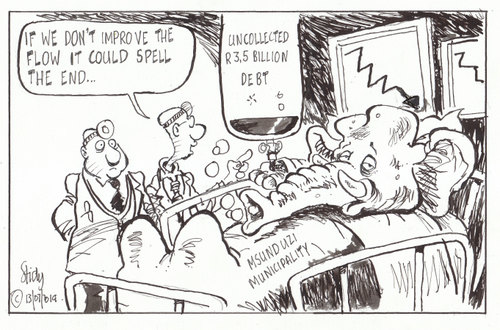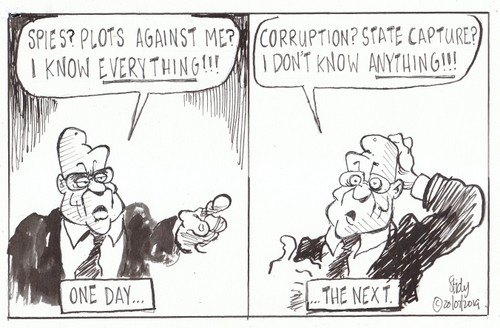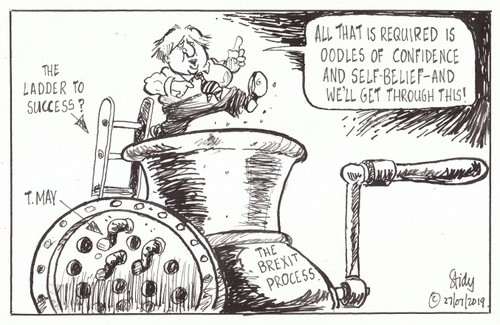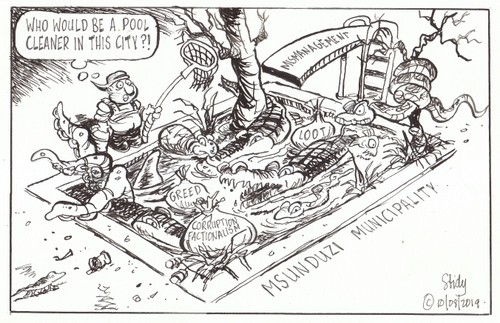SUMMARY:
As the Australian bush-fires continued to rage across large tracts of the continent – by early January an estimated 5 million hectares had been destroyed (as opposed to 906 000 hectares in the Amazon fires) – its governments initial tepid response and refusal to acknowledge the true extent of the crisis attracted widespread criticism. Prime Minister Scott Morrison’s own inability to utter the words “climate change” without breaking in to a cold sweat also showed a woeful reluctance to engage with the issues presented.
In the same week that it was reported that the two big KZ-N municipalities, Msunduzi and uMgungdlovu, were muscling up against each other to become a regional metro, Pietermaritzburg was visited by two ANC heavyweights, Zweli Mkhize and Blade Nzimande. They were both blunt in their assessment. The city is filthy, it stinks and its leadership is useless.
Eskom continued to be in the news for all the wrong reasons with the embattled power utility now saying that if it is not granted the substantial tariff increases it wants from March, its finances might collapse, triggering a national crisis, as both the state’s credit ratings and consumers’ well being would suffer. Responding to this, Melanie Veness, CEO of the Pietermaritzburg and Midlands Chamber of Business, warned that the proposed increases would be the final nail in the coffin for local businesses and would lead to retrenchments and a greater strain on the already struggling business sector.
Under pressure from detractors and enemies both inside and outside government and the ANC, Public Enterprises Minister, Pravin Gordhan, said he was following a mandate given to him by President Cyril Ramaphosa and that he must be left alone to complete the task he was given. With load-shedding costing the country between R59billion and R118billion in 2019, one can only hope he succeeds with his Eskom turnaround strategy.
After several years of acrimonious debate, the United Kingdom officially left the European Union on the 31st January, 2020. The country’s exit will undoubtedly prove to be British Prime Minister, Boris Johnson’s, biggest victory. At the same time it is very much a leap in to the dark and whatever happens in the coming stages of the Brexit process things look set to get more, not less, tricky.
The University of KwaZulu-Natal shut its doors after a week of violent protests which saw several buildings set alight on both the Pietermaritzburg and Durban campuses. Condemning, the incidents, the Minister of Higher Education, Blade Nzimande, said “These attacks look like well-orchestrated acts of sabotage and criminality meant to undermine and reverse the already achieved milestones reached with the South African Union of Students.”
Ignoring the loutish behaviour of Julius Malema and the EFF, President Cyril Ramaphosa implored South Africans to “…not allow fear to stand in our way” in his annual State of the Nation Address (SONA) to Parliament. While his national call to action contained some positive announcements, the fear remains that with state finances in dire straits, the economy all but ground to a halt and state companies floundering, the president will allow himself to remain captured by party dogma and constrained by indecision.
Former President, Jacob Zuma, continued to use every trick in the book to avoid his day of reckoning in court, charged with corruption. Having presented a sick note to excuse his absence – it was rejected by Judge Dhaya Pillay of the Supreme Court because the dates appeared to have been altered – Zuma then went on to accuse the National Prosecuting Authority (NPA) of employing Apartheid-era tactics against him.
He also insisted that these were not deliberate delaying tactics on his part…
A proposal to cut the state’s wage bill by R160,2 billion over the next three years as Treasury warns of ever-rising debt repayments, was one of the key announcements of the 2020 budget, presented by Finance Minister, Tito Mboweni. The move was immediately opposed by the Public Services Union (PSA) who vowed to fight any threat to freeze public servants’ salary increases.

